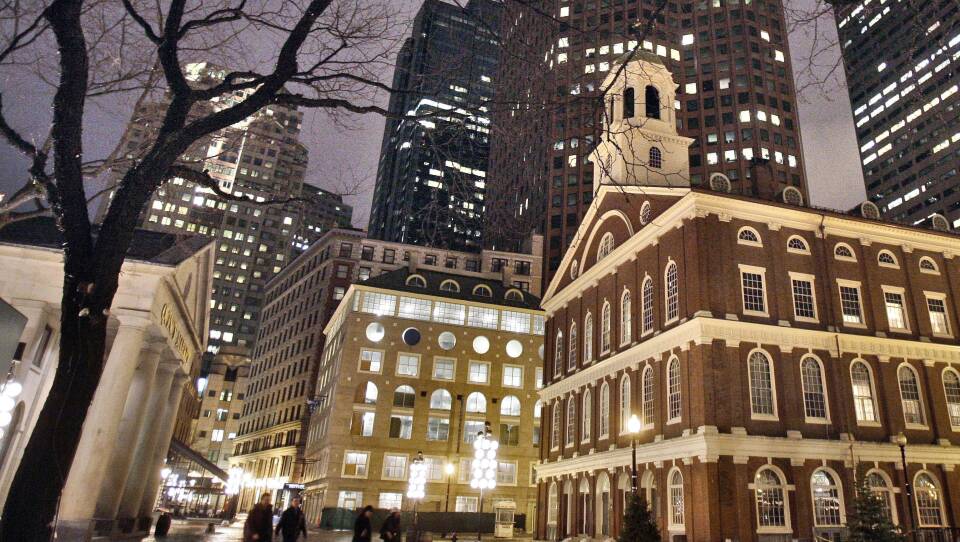The city of Boston is considering a proposal for a memorial at Faneuil Hall that would recognize the victims of the slave trade and acknowledge that Peter Faneuil, the 18th-century merchant and slaveholder who is the hall's namesake , derived his family wealth from slavery.
The memorial, designed by artist and MassArt professor Steven Locke , would take the shape of an auction block, with a small rectangle representing the auctioneer and a larger rectangle representing the people sold into slavery. The larger section would consist of a 10-by-16 foot bronze plate embedded in the surrounding brick depicting a map of the triangular trade route, which carried enslaved people, goods, and raw materials between Africa and the Americas.
"It's my job as an artist to walk around this city and think about resilience and racial equity," Locke told Boston Public Radio Friday. "So when I walk around Faneuil Hall, I'm trained to notice what's missing, and what's missing is an acknowledgment of the enslaved Africans and African-Americans whose trafficking financed the building of Faneuil Hall."
The bronze plate would be constantly heated to 98.6 degrees Fahrenheit to evoke the human beings who were bought and sold in Boston, including at Merchants Row.
"This will make touching the work an intimate and reverent experience as if you are touching a living person," Locke said in a statement.
The proposal is being reviewed for funding from the Edward Ingersoll Browne Fund for public art , according to Mayor Marty Walsh.
Walsh praised the design on Boston Public Radio Friday and said he hoped it would spark conversations about Boston's history.
"I think there's an opportunity with the Slave Auction Block Memorial ... to actually tell us what happened at Faneuil Hall, but also tell us what happened after slavery at Faneuil Hall," Walsh said.
"I commend Steve, because he's raising the conversation through art," Walsh added.
The proposed memorial comes as cities and institutions around the country are rethinking the stories their public monuments tell about slavery — from the removal of Confederate statues in the South to acknowledging how institutions in New England were shaped by wealth from the slave trade. In 2017, Harvard Law School unveiled a plaque memorializing the enslaved people owned by the Royall family, whose money helped establish the school. (In 2016 the law school also changed its crest, which incorporated the coat of arms of Isaac Royall.) A memorial to Confederate soldiers on Georges Island was also removed in 2017.
Earlier this year, Faneuil Hall became part of that debate. In June, a group called the New Democracy Coalition petitioned City Council to rename the market , suggesting Crispus Attucks — an African-American man killed in the Boston Massacre, and regarded as the first American to die in the American Revolution — as a potential replacement.
Locke said he didn't support changing the market's name.
"I understand people are wounded by the notion that a huge edifice in the city is named after a slaver. I understand the wound," Locke said. "But I also know you can never have too much truth, and the goal is to have as much truth as possible."




